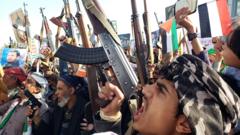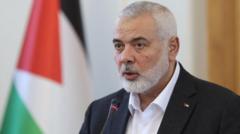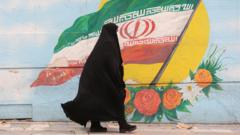**Cecilia Sala, a prominent Italian journalist, has been detained in Iran while reporting on significant social changes within the country. The situation highlights growing concerns about the treatment of journalists abroad, especially in states with repressive regimes.**
**Italian Journalist Detained in Iran: International Concerns Rise**

**Italian Journalist Detained in Iran: International Concerns Rise**
**Cecilia Sala's arrest raises questions about press freedom and safety for foreign correspondents in Iran.**
Italian journalist Cecilia Sala, known for her impactful reporting, has been detained in Iran and confined in the notorious Evin prison, after being arrested on December 19, 2024. Italy’s foreign ministry confirmed the news on December 27, as details regarding the nature of her arrest remain vague. Sala was in Iran covering the evolving dynamics of the country, particularly focusing on the consequences of the changing political landscape and the aftermath of military conflicts affecting the region.
Over the course of her reporting, Sala, who is 29 years old, highlighted significant cultural shifts in Iran. She noted an increasing number of women defiantly shedding their hijabs as an act of protest against government policies. Sala also featured interviews with local voices, including an Iranian comedian who had experienced imprisonment, showcasing the personal stories that underscore the national narrative of dissent.
Scheduled to return to Italy on December 20, Sala failed to appear at the Tehran airport, prompting concerns among family and colleagues. Claudio Cerasa, editor of the Italian newspaper Il Foglio, emphasized that Sala was in Iran on a regular media visa, facilitating her journalistic endeavors. According to reports, her situation has escalated to solitary confinement within Evin prison, which is widely recognized for housing political prisoners.
As international reactions continue to unfold, the detention of Cecilia Sala serves as a stark reminder of the precarious environment that journalists often navigate when reporting in regions with strict governmental controls and limited freedom of expression.



















